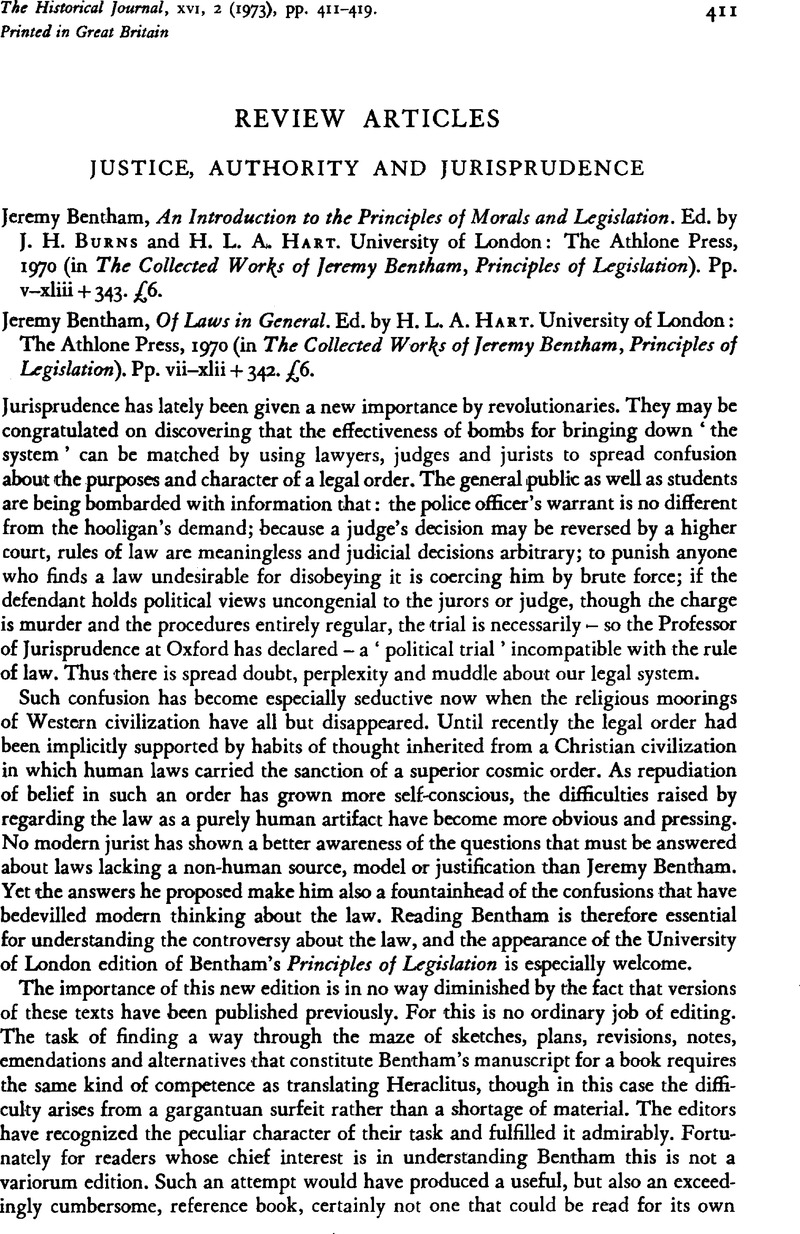Article contents
Justice, Authority and Jurisprudence
Published online by Cambridge University Press: 11 February 2009
Abstract

- Type
- Review Articles
- Information
- Copyright
- Copyright © Cambridge University Press 1973
References
1 Introduction to the Principles of Morals and Legislation, p. 298 a2.Google Scholar
2 Ibid. p. 27 (6).
3 Of Laws in General, p. 2, para. a.
4 Ross, Alf, On Law and Justice (London, 1958), p. 261.Google Scholar
5 Blackstone, , Commentaries (1819), p. 6.Google Scholar
6 Hart, H. L. A., The Concept of Law (Oxford, 1961), p. 39.Google Scholar
7 Hart, , ‘Positivism and the Separation of Law and Morals’, 71 Harvard Law Review 610 F.Google Scholar
8 Hart, , ‘Scandinavian Realism’, Cambridge Law Journal (1959), p. 235.Google Scholar
9 Hart, , The Concept of Law, pp. 188, 189.Google Scholar
10 Ibid. pp. 82–8.
11 This also makes the robes, wigs, tides and ceremonies associated with legal procedures neither useless nor sinister, but essential. They are what they have always been described as being – ‘symbols of authority’. They signify that the judge is not merely a man stating his opinion, but a judge authorized to decide; that the counsel pleading are not just imagining an effective plea for or against the defendant, but are pleading in accordance with authorized procedures and rules. Bentham ridiculed all the rituals of the law because he had no understanding of the place of authority in law. Moreover in advocating a ‘natural’ system of law free of all ritual, Bentham contradicted himself. For if the law is an artifact, as Bentham maintained, no system of law is ‘natural’, though it may be more or less desirable.
12 Cf. Levi, Edward A., An Introduction to Legal Reasoning (Chicago, 1970).Google Scholar
- 1
- Cited by




